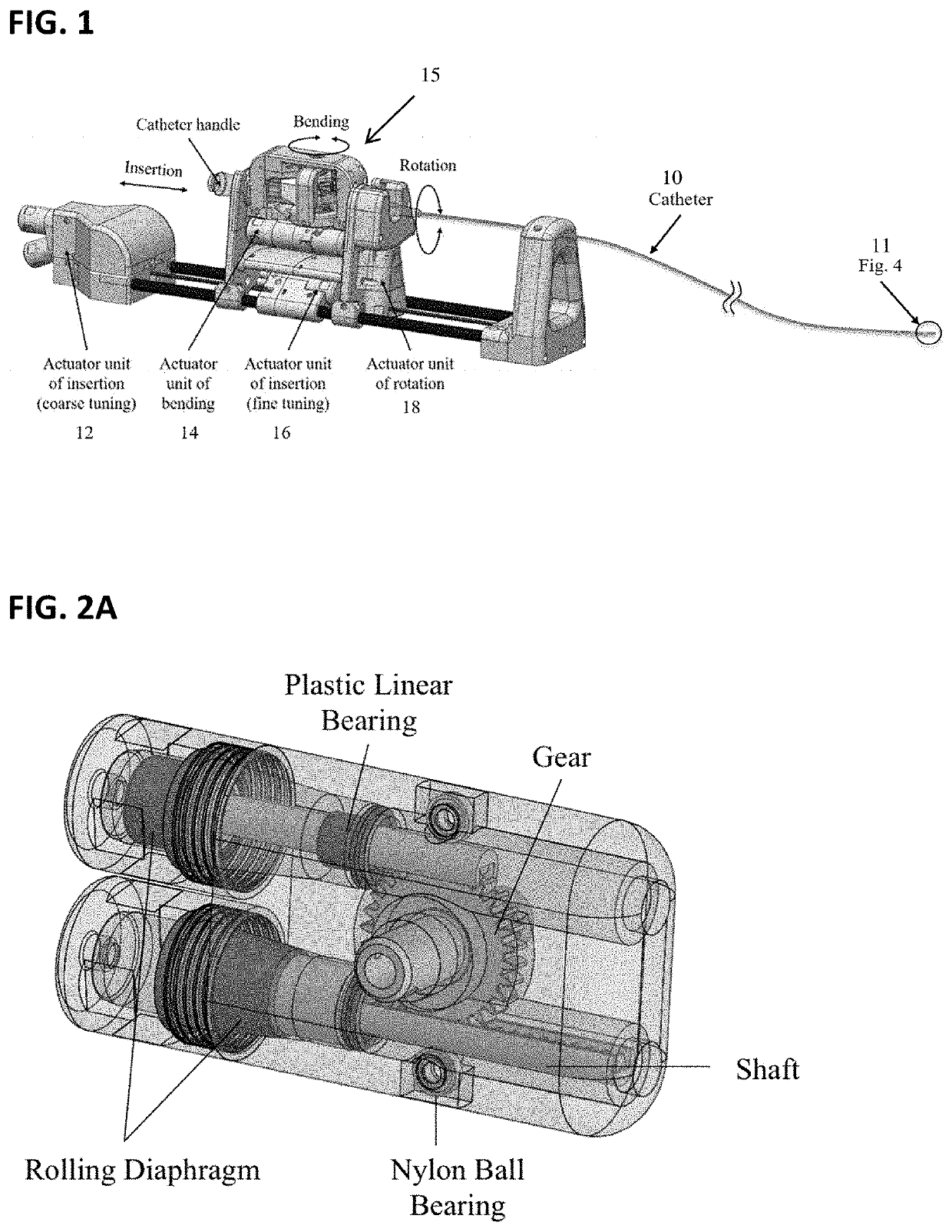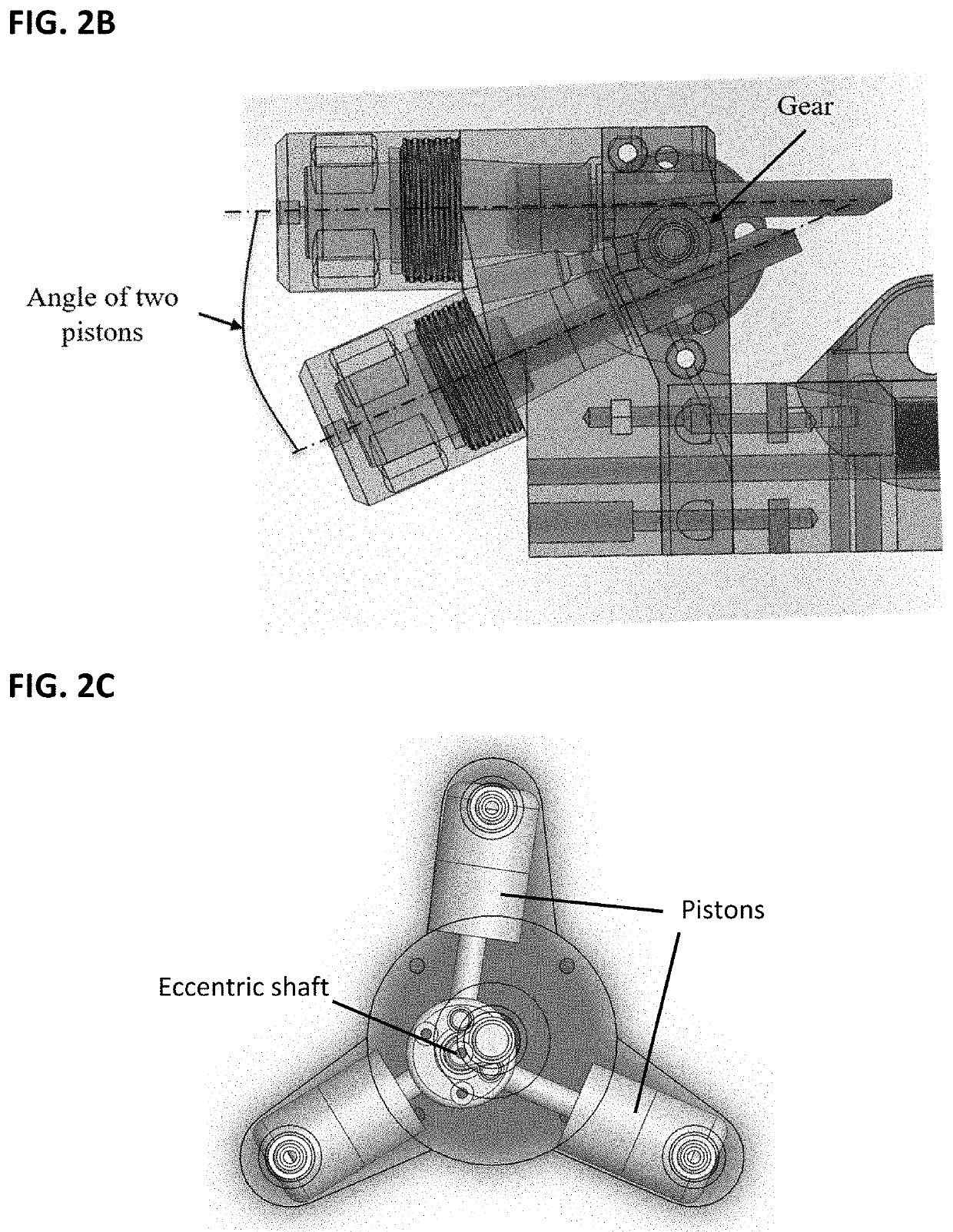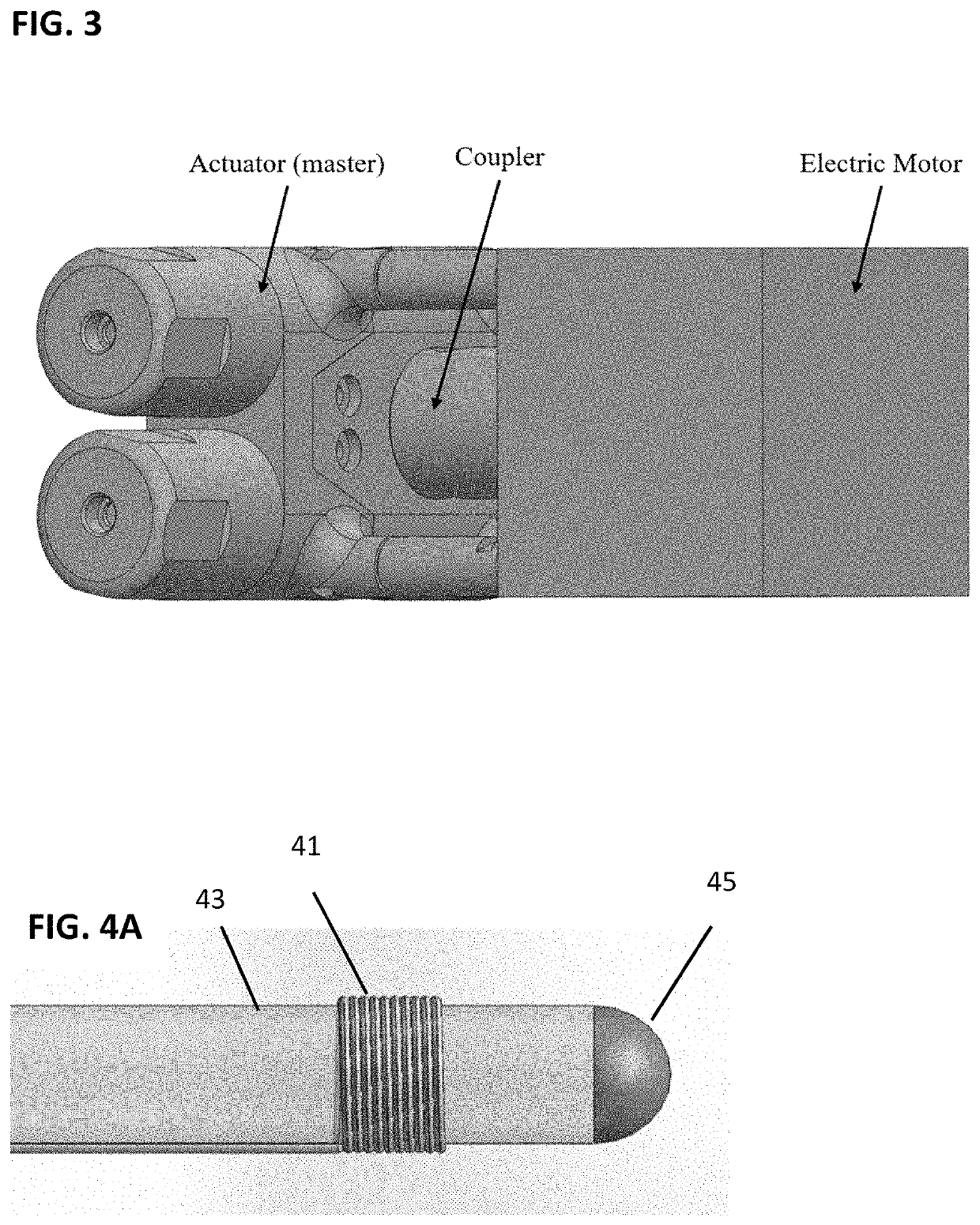Robotic catheter system for MRI-guided cardiovascular interventions
a robotic catheter and robotic technology, applied in the field of medical robots, to achieve the effect of improving hand-eye coordination, low latency, and high rate position sampling
- Summary
- Abstract
- Description
- Claims
- Application Information
AI Technical Summary
Benefits of technology
Problems solved by technology
Method used
Image
Examples
Embodiment Construction
[0033]The current invention is a surgical catheter robot for MRI-guided intervention in endovascular procedures in a remote way. The components of the present invention could also be composed of and integrated with various designs of other robotic platforms used for interventions which are benefited from intraoperative guidance by MRI, such as neurosurgery, prostate surgery or breast biopsy. In particular, FIG. 1 shows a robot guide for a catheter 10, whose tip 11 is shown enlarged in FIG. 4. The catheter is guided through the body of a patient. The robot is made of MRI-safe / conditional materials (or any non-ferromagnetic materials, e.g. plastics / polymers). The robot comprises a main robot body 15 and actuators 12, 14, 16 and 18, that provide 3 degrees-of-freedom (DoFs) motion, i.e. allowing linear translational, rolling and steering control over the catheter.
[0034]For achieving the catheter pushing / pulling motion, the two actuator units 12, 16 serve separately for coarse movement a...
PUM
 Login to View More
Login to View More Abstract
Description
Claims
Application Information
 Login to View More
Login to View More - R&D
- Intellectual Property
- Life Sciences
- Materials
- Tech Scout
- Unparalleled Data Quality
- Higher Quality Content
- 60% Fewer Hallucinations
Browse by: Latest US Patents, China's latest patents, Technical Efficacy Thesaurus, Application Domain, Technology Topic, Popular Technical Reports.
© 2025 PatSnap. All rights reserved.Legal|Privacy policy|Modern Slavery Act Transparency Statement|Sitemap|About US| Contact US: help@patsnap.com



